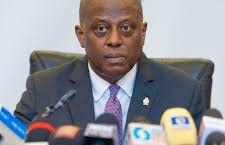Central Bank of Nigeria (CBN) Governor Olayemi Cardoso has unveiled a series of transformative reforms aimed at stabilizing Nigeria’s economy, restoring investor confidence, and steering the country toward single-digit inflation. Speaking at a fireside chat hosted by Lagos Business School under the theme “Next Generation Leadership in Monetary Policy and Nation Building,” Cardoso emphasized that the reforms were not merely cosmetic but rooted in a deep commitment to transparency, credibility, and institutional integrity. He asserted that the success of any central bank hinges on the trust it commands, and that restoring this trust has been central to his administration’s agenda.
Among the most notable achievements highlighted was the clearance of a foreign exchange backlog exceeding $7 billion, a move that had long been awaited by investors and market participants. Cardoso attributed this breakthrough to the bank’s renewed emphasis on transparency and resilience, noting that such efforts have helped restore sanity to Nigeria’s foreign exchange market. He also pointed to the reintroduction of financial statement publications, an act that had been neglected for years, as a milestone in accountability and openness. These steps, he said, are essential for rebuilding confidence in Nigeria’s financial system and attracting sustainable investment.
Cardoso further showcased the technological advancements introduced under his leadership, including a new electronic matching system designed to enhance transparency and eliminate sharp practices in market operations. This system, he explained, has made financial transactions more open and fair, reinforcing the bank’s commitment to ethical standards. Another key reform was the expansion of Naira debit card usability abroad, a development that marks a significant stride toward financial inclusion and global integration for Nigerian citizens. These changes, he argued, are not about self-congratulation but about building a central bank that serves the people with integrity and foresight.
Looking ahead, the governor expressed a strong desire to deepen public understanding of monetary policy and to nurture the next generation of financial leaders. He underscored the importance of Nigeria’s youth, who represent the country’s largest demographic, in driving future economic development. Cardoso’s vision includes supporting small and medium-sized enterprises, expanding access to financial services, and fostering a culture of innovation and accountability. With inflation beginning to ease and investor sentiment improving, the CBN’s reform trajectory under Cardoso appears to be laying a solid foundation for long-term economic stability and institutional credibility.
